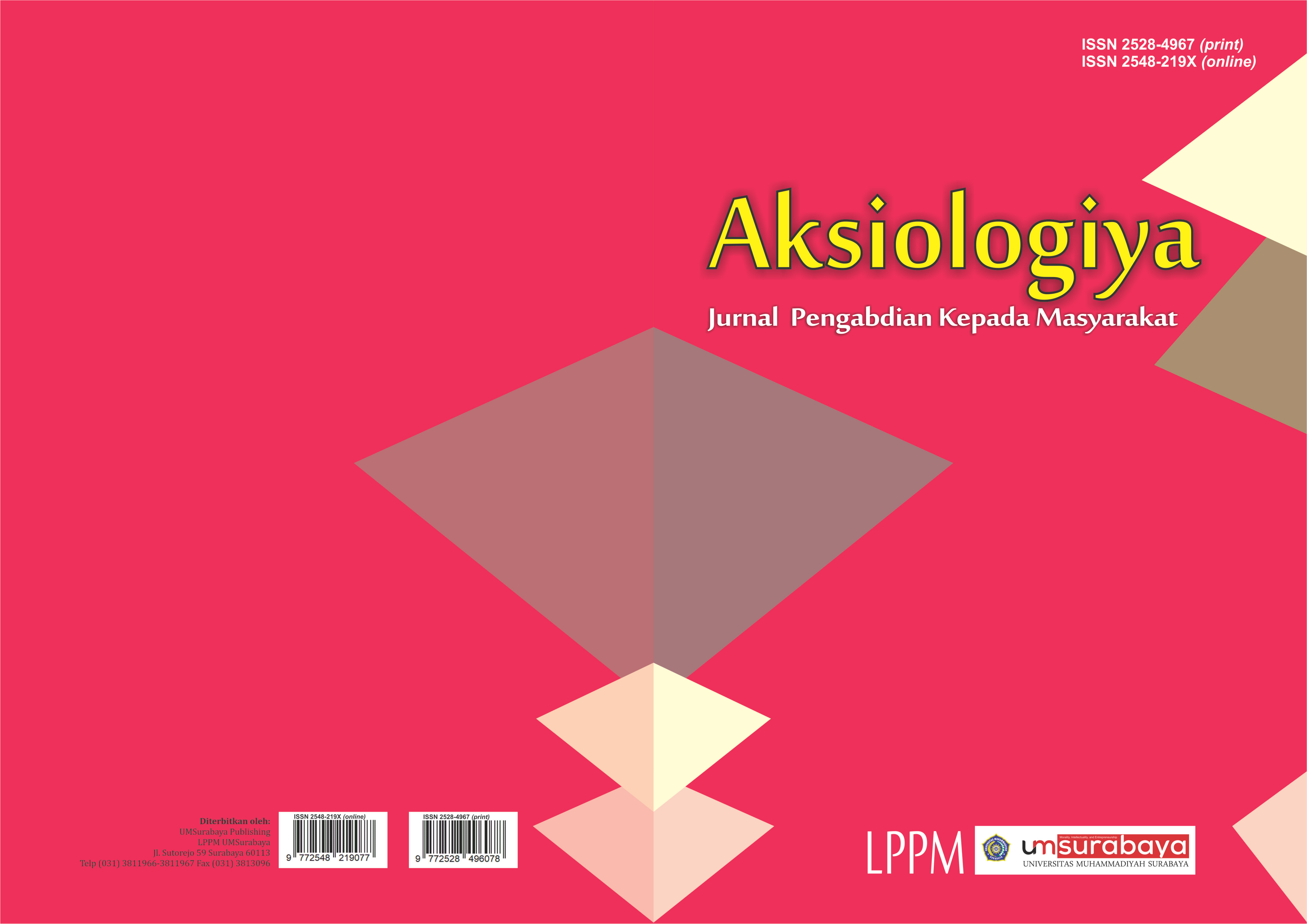Isi Artikel Utama
Abstrak
Obat merupakan sediaan yang tersusun atas satu atau lebih senyawa kimia yang memberikan khasiat dalam menjaga dan meningkatkan kesehatan masyarakat. Tetapi pada sisi lain obat bisa membahayakan kesehatan jika tidak digunakan sesuai aturan yang ditetapkan. Hal ini mengindikasikan bahwa setiap obat memiliki rasio manfaat dan resiko yang berbeda dan batasan ini menjadi tolak ukur keamanan obat. Berdasarkan fakta tersebut, diperlukan pengetahuan dan wawasan terkait obat yang dimulai dari masa pendidikan tingkat kanak-kanak hingga menengah atas untuk mempengaruhi tingkah laku penggunaan obat-obatan di lingkungan keluarga maupun masyarakat. Salah satu bentuk kegiatan yang mungkin dilakukan adalah berupa permainan dalam pendidikan obat bernama PIANO (pintar dengan obat). Permainan ini menekankan konsep pemberdayaan siswa dalam meningkatkan kemampuan memahami obat secara komprehensif sehingga pada akhirnya diharapkan terjadi perubahan sikap dan perilaku positif dalam peggunaan obat yang rasional dan sekaligus secara tidak langsung dapat mencegah penyalahgunaan obat. Hasil pengamatan kegiatan menunjukkan bahwa para siswa sangat antusias mengikuti kegiatan dan hasil analisis data menunjukkan adanya pengaruh permainan PIANO yang dilakukan dalam peningkatan pengetahuan mengenai obat.
School-Based Medicine Education Using the Piano Game Method (Smart with Medicine)
ABSTRACTÂ
Drugs are preparations composed of one or more chemical compounds that provide efficacy in maintaining and improving public health. But on the other hand drugs can be dangerous to health if not used according to established rules. This indicates that each drug has a different ratio of benefits and risks and this limit is a measure of drug safety. Based on these facts, knowledge and insight related to drugs are needed starting from the level of childhood education to senior high school to influence the behavior of the use of drugs in the family and community. One form of activity that might be carried out is in the form of a game in drug education called PIANO (smart with drugs). This game emphasizes the concept of empowering students in enhancing the ability to comprehend drugs comprehensively so that ultimately positive attitude and behavior changes in rational use of drugs are expected and at the same time indirectly can prevent drug abuse. The observations of the activities showed that the students were very enthusiastic about participating in the activities and the results of data analysis showed that there was an influence of the PIANO game which was done in increasing knowledge about the drug.
Â
Keywords:Â drug education, games, smart with medicine, piano
Kata Kunci
Rincian Artikel
Hak cipta artikel dimiliki oleh jurnal AKSIOLOGIYA
Ciptaan disebarluaskan di bawah Lisensi Creative Commons Atribusi-NonKomersial 4.0 Internasional.
Referensi
- Andersson Sundell K and Jönsson AK, 2012. Beliefs about medicines are strongly associated with medicine-use patterns among the general population. Int J Clin Pract 70(3):277–285.
- Bozoni K, Kalmanti M, Koukouli S, 2006. Perception and knowledge of medicines of primary schoolchildren: the influence of age and socioeconomic status. Eur J Pediatr 165(1):42–49.
- BPS, 2015. Data Kependudukan Indonesia. Jakarta.
- Departemen Kesehatan RI. Undang-Undang Republik Indonesia Nomor 36 Tahun 2009 Tentang Kesehatan. Jakarta: Kementrian Kesehatan RI: 2009.
- Hämeen-Anttila K, 2006. Education before medication, empowering children as medicine users. Kuopio, Kuopio University Publications A. Pharmaceutical Sciences 89.
- Kemenkes RI, 2011. Modul Penggunaan Obat Rasional
- Kemenkes RI, 2015, Pedoman Akselerasi Pembinaan dan Pelaksana UKS
- Sleath, B., Bush, P., Pradel, F., 2003. Communicating with children about medicines: a pharmacist’s perspective. Am. J. Health Syst. Pharm. 60, 604–607
- Syofyan, 2019a. Pengembangan Model Cara Belajar Obat yang Benar (CBOB) Berbasis Sekolah. Disertasi. Univeristas Andalas.
- Syofyan, Dachriyatus, Masrul, Rosfita Rasyid. 2019b. Pintar dengan Obat, Cerdas penggunaannya, cegah penyalahgunaannya. Andalas University Press.
- World Health Organization (WHO), Regional Office for South-East Asia, 2006, The role of education in the rational use of medicines, SEARO Technical Publication Series No.
Referensi
Andersson Sundell K and Jönsson AK, 2012. Beliefs about medicines are strongly associated with medicine-use patterns among the general population. Int J Clin Pract 70(3):277–285.
Bozoni K, Kalmanti M, Koukouli S, 2006. Perception and knowledge of medicines of primary schoolchildren: the influence of age and socioeconomic status. Eur J Pediatr 165(1):42–49.
BPS, 2015. Data Kependudukan Indonesia. Jakarta.
Departemen Kesehatan RI. Undang-Undang Republik Indonesia Nomor 36 Tahun 2009 Tentang Kesehatan. Jakarta: Kementrian Kesehatan RI: 2009.
Hämeen-Anttila K, 2006. Education before medication, empowering children as medicine users. Kuopio, Kuopio University Publications A. Pharmaceutical Sciences 89.
Kemenkes RI, 2011. Modul Penggunaan Obat Rasional
Kemenkes RI, 2015, Pedoman Akselerasi Pembinaan dan Pelaksana UKS
Sleath, B., Bush, P., Pradel, F., 2003. Communicating with children about medicines: a pharmacist’s perspective. Am. J. Health Syst. Pharm. 60, 604–607
Syofyan, 2019a. Pengembangan Model Cara Belajar Obat yang Benar (CBOB) Berbasis Sekolah. Disertasi. Univeristas Andalas.
Syofyan, Dachriyatus, Masrul, Rosfita Rasyid. 2019b. Pintar dengan Obat, Cerdas penggunaannya, cegah penyalahgunaannya. Andalas University Press.
World Health Organization (WHO), Regional Office for South-East Asia, 2006, The role of education in the rational use of medicines, SEARO Technical Publication Series No.


